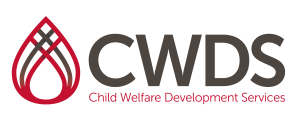CWDS Curriculum
Trauma Informed Child Welfare Practice
Level: Advanced Practice – Lineworker, Supervisor, Manager
Credits: 6
Intended Audience: Child Welfare lineworkers, supervisors and managers
Description of Course: This course will give child welfare professionals the tools to use an understanding of the impact of trauma to make child welfare practice more effective for children and families and more satisfying for child welfare professionals.
Intended Objectives:
- Participants will list two general ways that an understanding of the impact of trauma and neglect can improve how we work with children and families.
- Participants will identify and create interventions that address each of the three main levels of brain functioning in order to help children and their parents to heal from the impact of early trauma and neglect.
- Participants will describe the manner in which repetitive exposure to traumatic stress can impact the behavior of children and their parents.
- Participants will identify three things that can be done to stabilize a child who is experiencing trauma triggers.
- Participants will develop interventions to help children whose behaviors are impacted by trauma triggers.
- Participants will identify cultural issues related to trauma in families.
- Participants will learn how to select evidence based mental health trauma treatments, how to support trauma treatment and how to coach caregivers to support trauma treatment.
- Participants will identify the elements of a trauma informed system of care.
- Participants will evaluate their own level of secondary traumatic stress and will identify strategies for alleviating STS.
- Participants will identify factors that lead to STS versus those that lead to Compassion Satisfaction.
Topics Include:
- The impact of trauma and neglect on brain and nervous system development and functioning
- Interventions to help restore healthy functioning
- The stress response system
- The impact of repeated trauma exposure on behavior, mental health, physical health and life functioning
- Interventions to help children cope with trauma triggers
- Cultural and socio-economic factors as they relate to the impact of trauma exposure for children and families
- Screening, assessment and diagnostic issues for children exposed to early trauma and neglect
- Evidence-based and evidence-informed trauma treatments
- How child welfare workers and caregivers can support and enhance children’s trauma treatment
- Secondary traumatic stress and vicarious traumatization of child welfare professionals
- Strategies to reduce Secondary Traumatic Stress and promote “Compassion
- Satisfaction” among child welfare professionals
Mental Health & Behavioral Health



